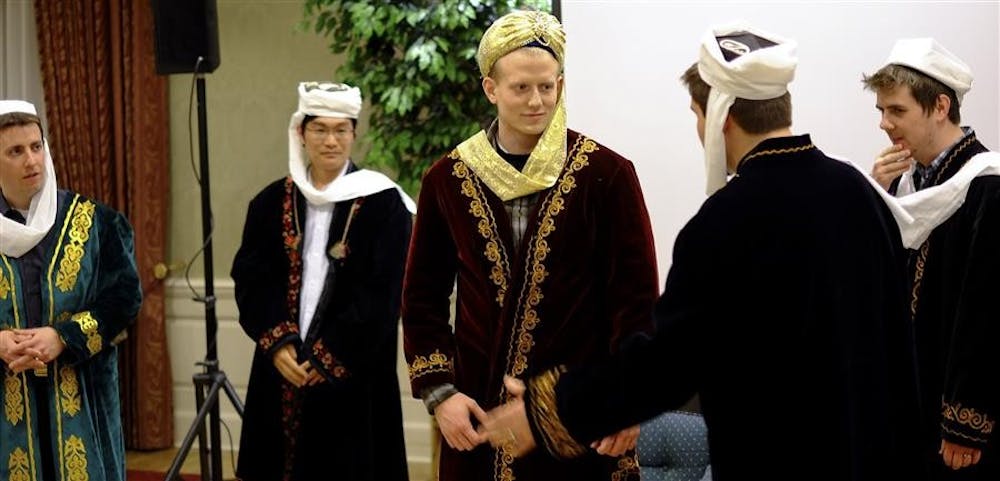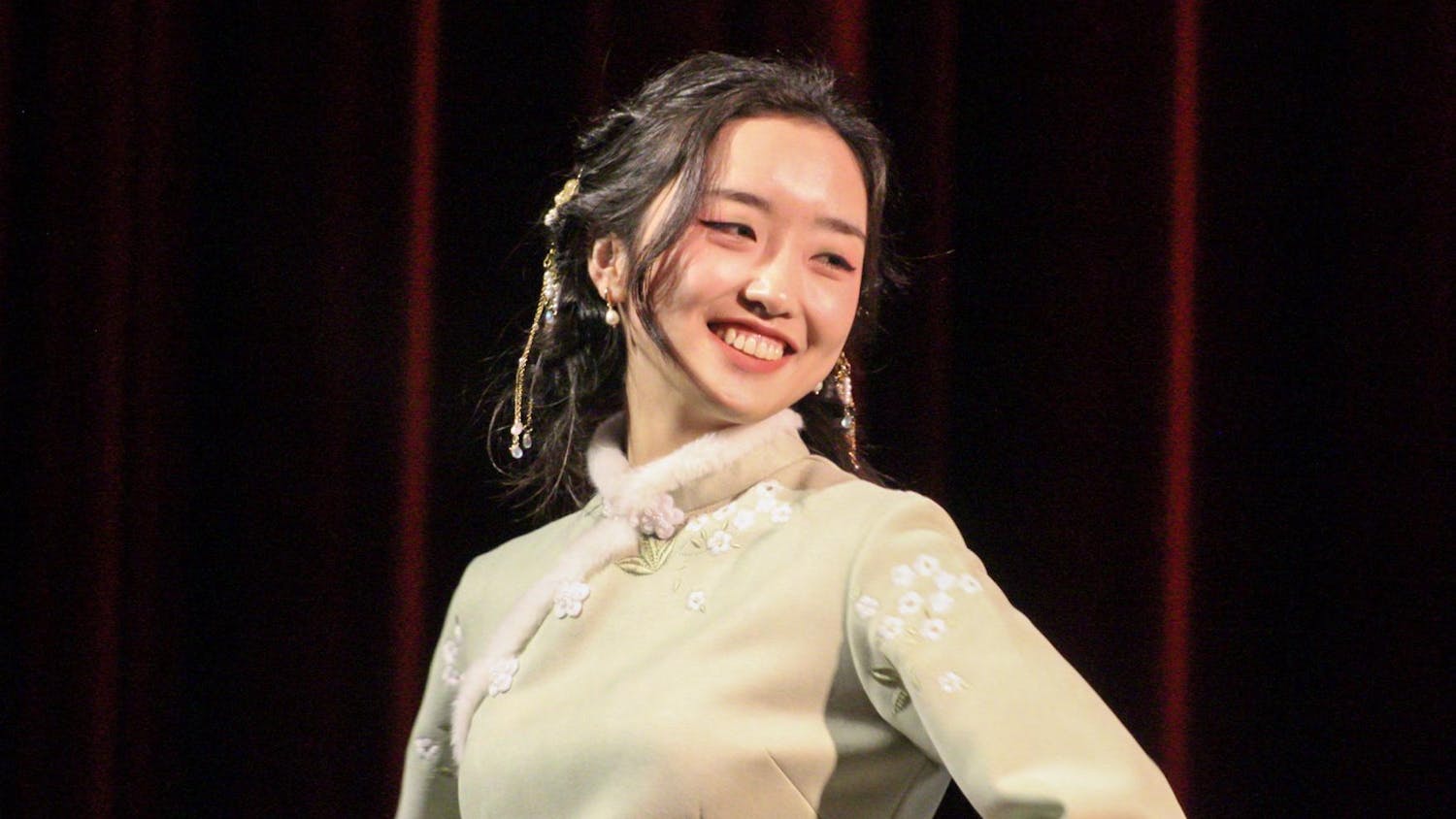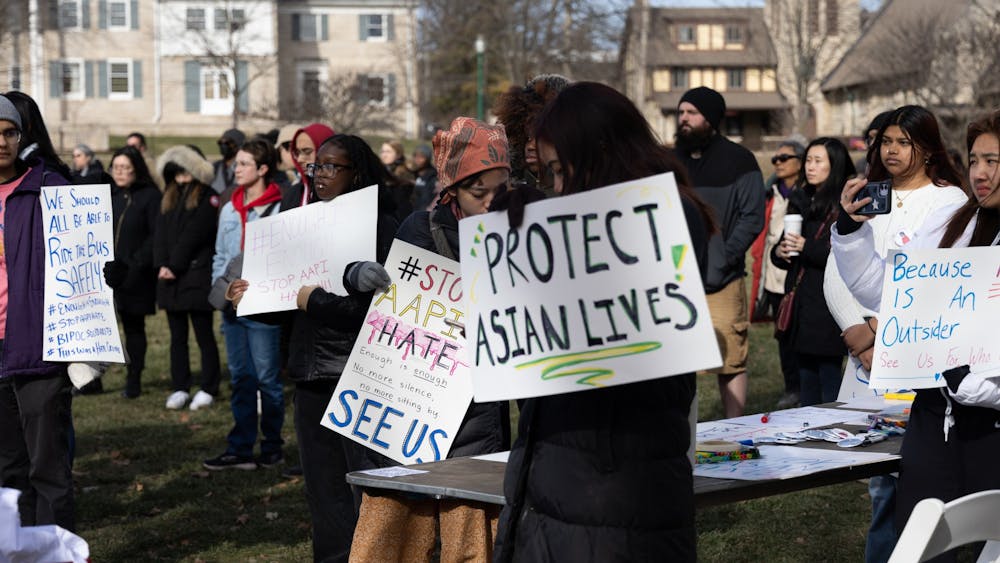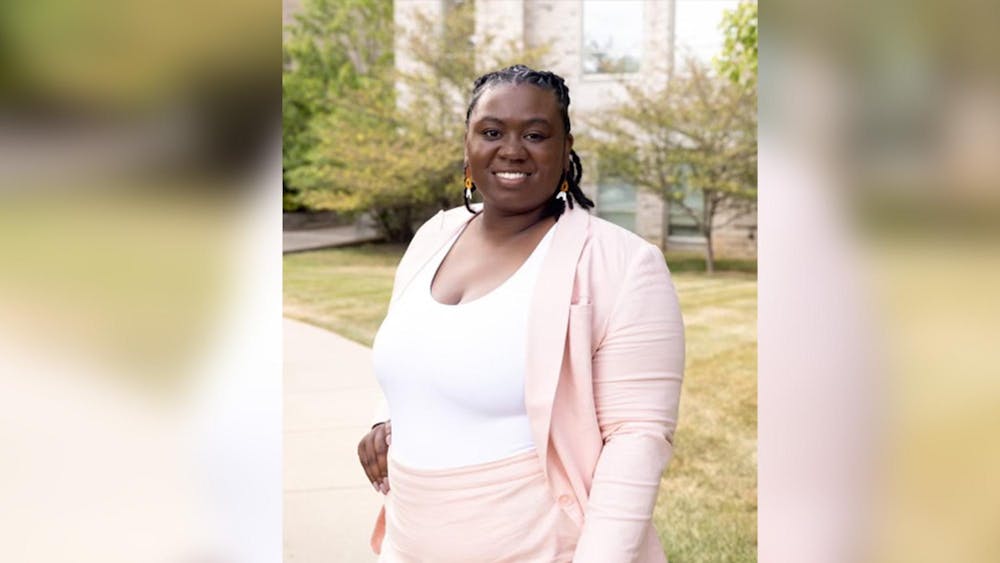Students in the Department of Central Eurasian Studies, Turkish Flagship Programs and Near Eastern Language and Cultures gathered Friday and recited Uzbek poetry from a man six centuries before their time.
According to Uzbek Lecturer Malik Hodjaev, the poet’s name was Ali-Shir Navoi and he is widely known as the founder of the Turkic-Uzbek literature. Although the political activist wrote much of his poetry in the 1400s, many people today — including the Uzbek Student and Scholar Association that put on the event — still find relevancy in his poetry.
Umida Khikmatillaeva, the UzSSA founder and adviser, said this recital is not just a celebration of Navoi’s birthday, but also an example of culture awareness in the IU community.
“Our goal is to introduce Uzbek and Turkic culture to more students,” Khikmatillaeva said.
According to Khikmatillaeva, there were nine poetry competitors who were judged by the Less Commonly Taught Languages professors. The professors judged the performers’ physical presence, dramatic appropriation and level of difficulty of the poem, along with other criteria.
The first, second and third place winners all won an English translated book called “A Collection of Uzbek Short Stories” by IU alumnus Mahmuda Saydumarova.
The performers donned traditional Turkic Uzbek atlas fabric and doppis — traditional hats worn by men and women.
Benjamin Brunett, a second year master’s student in the Department of Near Eastern Languages and Cultures, won the competition. Brunett said the most challenging thing about learning the poetry was understanding Navoi’s language style.
“It was difficult,” Brunett said, “I’m just a first year student of Uzbek and Ali-Shir Navoi was writing in the 15th century so the language is different. There’s a lot I don’t understand. It’s a little difficult to get the rhythm and intonation right. It just takes a lot of practice.”
However, Brunett said his knowledge of Arabic and Persian helped because of the similarities in the three Eurasian languages.
“It’s just easy to see all the connections in those languages and so that was helpful in translating a little bit,” Brunett said.
Brunett said Mufarra Musaeva, the vice president of UzSSA, helped him and the other students learn about the Uzbek language.
They both agreed reciting and translating Navoi’s poetry was like understanding Shakespeare.
“Mufarra is very enthusiastic in Uzbek culture and I think she really inspires us all to participate,” Brunett said. “I like to do things outside the classroom and outside grammar and the vocabulary. I like experience to culture, so learning and reciting a poem was a good way to do that.”
Musaeva, who is also a Fulbright foreign language teaching assistant, organized the Uzbek poetry recital for her students. She said Navoi was the father of Turkic literature deriving from Uzbek to Uyghur languages.
“At that time, everybody spoke Turkic language but nobody used it in literature,” Musaeva said, “He is the one that used this in the language.”
Students recite Uzbek poet

Get stories like this in your inbox
Subscribe





